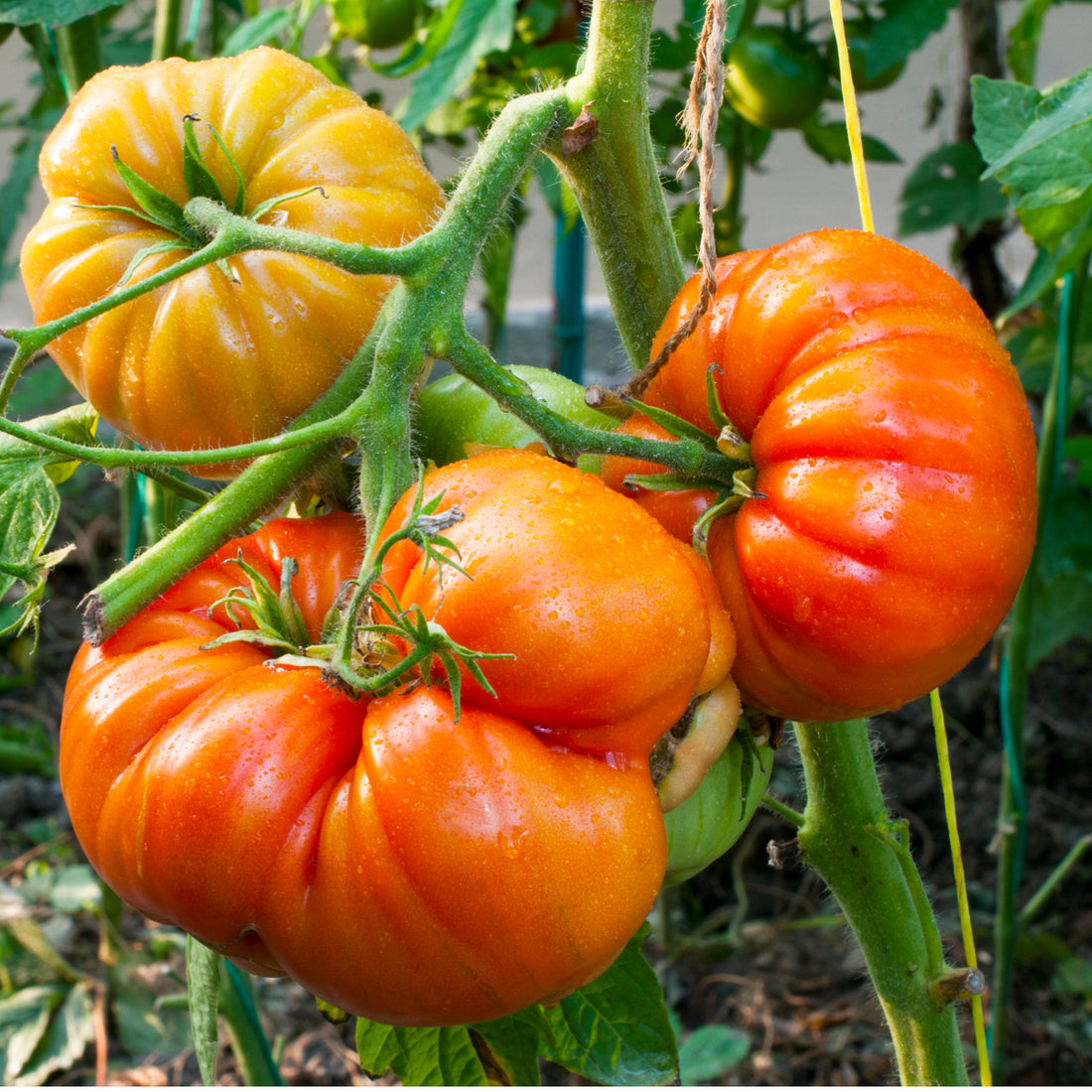
Modern Seed Development and a Lack of Genetic Diversity
Share
The development of hybrid and genetically modified (GM) seeds, and the patents that protect them, are decreasing plant genetic diversity. The negative ramifications of a shrinking plant gene pool are appalling.
A look at the narrow genetic base
The world is currently sustaining itself off the narrowest genetic base in history. Today 75% of all hybrid soybeans originate from only 6 plants in China. All sorghum in the US contains cytoplasm from 1 original plant. The Latin American coffee industry’s botanical lineage can be traced to only 1 tree in the Amsterdam Botanical Garden. Only 6 inbred types of corn account for about one half of the corn grown in North America.
Fifty to 70% of hybrid corn has genetic material from only 1 parent plant, known as B-73. Only 4 to 5 prominent inbred corn parent groups are used to produce 90% of the current hybrid corn variety. There are only 4 kinds of potatoes, which are closely related to one another, that make up 3/4th of the US potato crop. Only 10 varieties of wheat dominate the world market, although there are 250 varieties of wheat. Only 2 pea types make up 96% of peas grown in the US, 3 snap pea varieties make up 76% of peas grown at all, and 4 kinds of rice make up 65% of all rice crop grown in the world.
Loss of heirloom plants brings loss of small farmers
There is currently a process of transgenic contamination occurring. Multinational corporations are buying out family-owned seed companies and replacing regionally adapted seed varieties with their more profitable GM and hybrid patented seeds. They take over the farmland and crowd out diverse variety that naturally resist pests and restore the soil, replacing native seed stocks and bring them to extinction.
The loss of regional seeds creates farmer dependency on buying patented seeds from seed companies. Patents on seeds work to restrict the flow of plant genetics by preventing farmers and scientists from saving and sharing seeds. Farmers are forced to buy seeds from seed companies year after year, continuing the planting of homogeneous crops.
Contamination of heirloom varieties
Birds, bees, insects and the wind continue the natural genetic drift that has occurred for thousands of years, nature’s way of keeping plants viable and diverse through pollination. By taking pollen from a hybrid or GM plant to an heirloom variety, hybrid and GM genetic codes pollute the heirloom plants. Seeds the heirloom varieties then produce contain the genes from the hybrid and GM variety and are no longer heirloom. A contamination of precious genetic resources is taking place all over the world.
In Great Britain GM plants are restricted to test plots; however, in 2002 pollen from GM plants were discovered in bee honey. Mexico has banned the growth of GM crops in order to preserve their 10,000 year old heritage corn. Yet a trade agreement with the US prevents Mexico from selling hybrid corn in the markets. Traces of GM have been found in Mexican heritage corn, endangering the selling of corn to GM-free countries such as those in the European Union.
Loss of diversity equals a loss of nutrition.
As we restrict the world’s plant genetic base we also risk losing forever the nutrition that diversity and variety of plants offer. Humanity and all of ecology survive due to diversity. The practice of producing hybrid seeds, tampering with genetics, and patenting seeds, which refuses the saving and replanting of varieties, increasingly limits the gene pool in which plants derive.
Seed companies and lobbyists push for further development of GM crops and hybrid crops, stressing their potential benefits like using hybrid vigor to solve the problem of world hunger, or by genetically engineering vegetables and grains to contain certain vitamins and minerals. What these companies fail to mention is that they breed hybrid and GM crops for traits other than nutritional value, such as long-shelf life, thick skin to endure shipping, and uniform appearance. Hybrid and GM plants have significantly less nutritional value than heirloom varieties. A diet lacking vegetable nutrition and variety causes Vitamin A deficiencies, not the failure of wheat to produce beta-carotene.
Immunity to the technology
In the past, nature’s natural defense against insect, weed and disease adaptation was simple diversity. Without genetic diversity in our crops we welcome immunity to our man-made defenses and we are vulnerable to entire crop wipe-outs.
Hybrid and GM crops are meant to be grown in monocultural plots with little variety. They are bred for productivity and to resist pesticides and insects. Weeds quickly adapt to fertilizers by inheriting the genetic trait that makes GM crops herbicide-resistant, and insects and diseases naturally adapt to the chemicals and genetic alterations in plants that are originally designed to fend them off. This requires the use of harsher chemicals, posing a significant threat to the health of humans, animals and microorganisms essential in the nutrition of the soil.